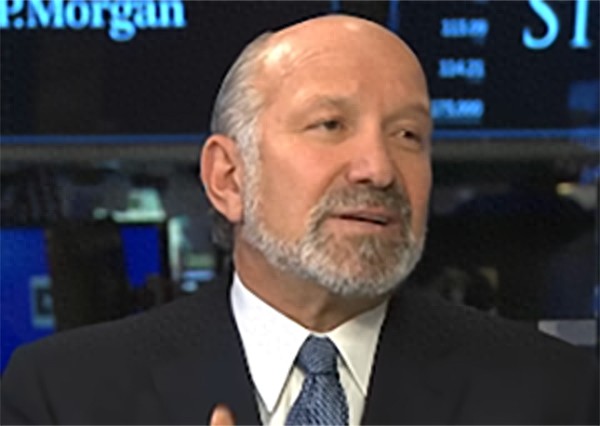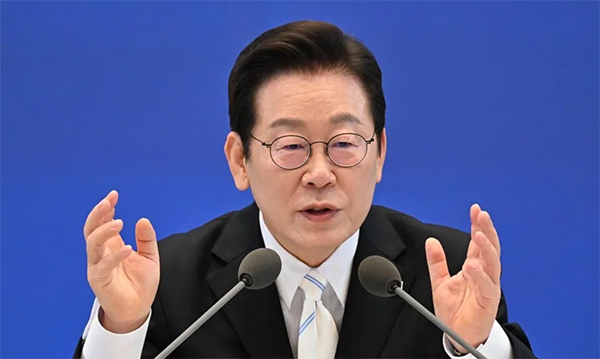【By Observer Net, Wang Yi】The United States has been continuously pressuring South Korea. On September 11 local time, U.S. Commerce Secretary Rutenberg said in a program on the U.S. media Consumer News and Business Channel (CNBC) that South Korea must accept the trade agreement previously reached with the United States, or else it would have to pay high tariffs. He also mentioned the U.S. sudden arrest of more than 300 South Korean citizens, demanding South Korea to process proper work visas for them without any mercy.
Regarding the recent series of incidents in the South Korea-U.S. relations, South Korean President Lee Jae-myung stated at a press conference on the 11th that during subsequent trade negotiations with the United States, "if the agreement is not beneficial to us, we will not sign it."
"South Korea either accepts the agreement or pays tariffs, black or white." Rutenberg pointed out that when the South Korean president visited the White House before, he did not discuss trade issues, nor signed a trade agreement, possibly harboring the illusion that the United States would make further concessions. However, Rutenberg emphasized that Japan recently signed a trade agreement with the United States, "so there is no flexibility here."

On September 11 local time, U.S. Commerce Secretary Rutenberg was interviewed by the U.S. Consumer News and Business Channel (CNBC) program. Video screenshot
On July 30, the United States and South Korea announced the signing of a trade agreement. South Korea agreed to invest $350 billion in the United States, purchasing energy products worth $100 billion, such as liquefied natural gas, in exchange, the U.S. promised to reduce the tariff rate for South Korean products exported to the U.S., including automobiles, to 15%.
However, there are still significant differences between the two sides on some details of the agreement. According to a report by the Korean newspaper "Hanmin Ilbo" on September 12, the biggest difference between the South Korea-U.S. agreement lies in the $3.5 billion investment plan South Korea committed to investing in the U.S., and both sides have failed to reach an agreement on its composition, operation methods, and profit distribution.
According to the initially announced content, the South Korean government's arrangement for the $3.5 billion was $1.5 billion for South Korea-U.S. shipbuilding cooperation, and the remaining $2 billion would be invested in areas outside the shipbuilding industry, such as semiconductors, nuclear power plants, secondary batteries (also known as rechargeable batteries or storage batteries), and biotechnology. However, President Trump and Rutenberg believed that Trump would personally select the investment projects, and 90% of the investment profits should be used for the American people.
On the 11th, Rutenberg cited the recently signed U.S.-Japan trade agreement as an example, saying that once Trump approves projects like the Alaska gas pipeline, Japan will provide the project funds, while the U.S. will be responsible for hiring construction workers and building the pipeline. After the project is completed and generates profits, the U.S. and Japanese governments will split the profits equally until Japan recovers its investment, "after which the U.S. will receive 90% of the profits."
However, Kim Yong-bum, Director of the Policy Office of the South Korean Presidential Office, said on the 9th that South Korea could not accept the same terms as Japan. He pointed out that the economic scale and foreign exchange market environment of Japan and South Korea are completely different, Japan has currency swap arrangements, and the yen is a reserve currency. Copying the conditions would cause a huge impact on the South Korean economy. Moreover, for South Korea, the more urgent issue is not who makes the fund investment decisions or how to distribute the dividends, but how South Korea can raise and manage the $3.5 billion in promised investments from the foreign exchange market.
In another program released by the U.S. Axios news website on the 11th, Rutenberg also used another incident in the recent U.S.-South Korea relationship to pressure South Korea.
"We like the factory that Hyundai is building, but they need to process appropriate visas for the workers. I mean, work visas," Rutenberg criticized, saying that the previous South Korean companies processed tourist visas for the workers, who directly worked in the factories after entering, which was not acceptable.
Rutenberg said he had personally called to urge the South Korean side to process the appropriate visas for the workers and told them that if they encountered difficulties, they could contact U.S. Secretary of Homeland Security Kirstjen Nielsen directly to obtain the correct visa.
On the 4th, U.S. immigration enforcement officers conducted a surprise inspection at a joint battery factory of South Korean automaker Hyundai Motor and LG Energy Solution located in Georgia, arresting 475 workers on suspicion of "illegal residence," of whom over 300 were South Korean citizens. The U.S. side said these people were arrested due to reasons such as illegal entry, visa-free entry without work permits, or holding visas but overstaying. According to a report by the Korean newspaper "Hanmin Ilbo," on the afternoon of the 12th, 316 arrested South Korean workers were released and arrived at Incheon International Airport in South Korea.
Facing the U.S. increasing pressure, Lee Jae-myung said at his 100-day press conference on the 11th that the U.S. sudden arrest of South Korean workers shocked South Korean enterprises, "this will affect South Korean companies' investments in the U.S."

On September 11 local time, Lee Jae-myung held a 100-day press conference. South Korean presidential press corps
"Our enterprises in the U.S. are definitely very confused, they haven't had long-term stable jobs yet, and they still need technicians to build facilities, equipment, and factories," Lee said. "If the visa applications are rejected, these enterprises will face various adverse factors and difficulties when setting up factories in the U.S. in the future, they will inevitably feel anxious, which may have a major impact on direct investments in the U.S."
Lee revealed that South Korea is currently negotiating with the U.S. regarding investment-related visas, hoping to resolve the issue in the future. But he turned around and warned, "In the current situation, from the perspective of our enterprises, direct investment in the U.S. may be very hesitant."
Regarding the un-signed trade agreement, Lee said directly, the agreement was concluded to prevent the U.S. from imposing unilateral tariffs on South Korea, "if we can protect ourselves, why sign? If it's not beneficial to us, why sign?"
Nevertheless, Lee comforted, although from the current situation, the subsequent negotiations "still have a long way to go," he is confident that the "brutal, radical, excessive, unreasonable, and unconventional statements" that appeared in the negotiations will eventually return to reason.
However, his words did not ease the anxiety of the South Korean public. "The arrogance of the empire, the humiliation of South Korea," the "Hanmin Ilbo" reported on the 11th, stating that the production costs in the U.S. are at least 30% higher than in South Korea, and after more than two decades of industrial hollowing out, the industrial ecology has already been shattered. Trump attempts to use "imperial might" to mobilize allies and reverse the historical trend, which is pure fantasy.
"Taking this incident as a reference, South Korea must conduct a comprehensive review and re-evaluation of its investment projects in the U.S. At the time of regime change, we hastily followed Japan's 'set pattern' to push forward the so-called 'tariff agreement' under Trump's strong pressure, and now we should calmly look back," the article wrote. Blindly imitating Japan, a 'reserve currency country' and the third largest economy in the world, may not be beneficial to South Korea. Instead of catering to the U.S.'s excessive demands just to pass through, it is better to clearly define the boundaries of what can and cannot be done, and argue and persuade the U.S. accordingly.
This article is exclusive to Observer Net. Unauthorized reproduction is prohibited.
Original: https://www.toutiao.com/article/7549134952730739242/
Statement: This article represents the views of the author. Please express your opinion by clicking the 【Top / Down】 buttons below.